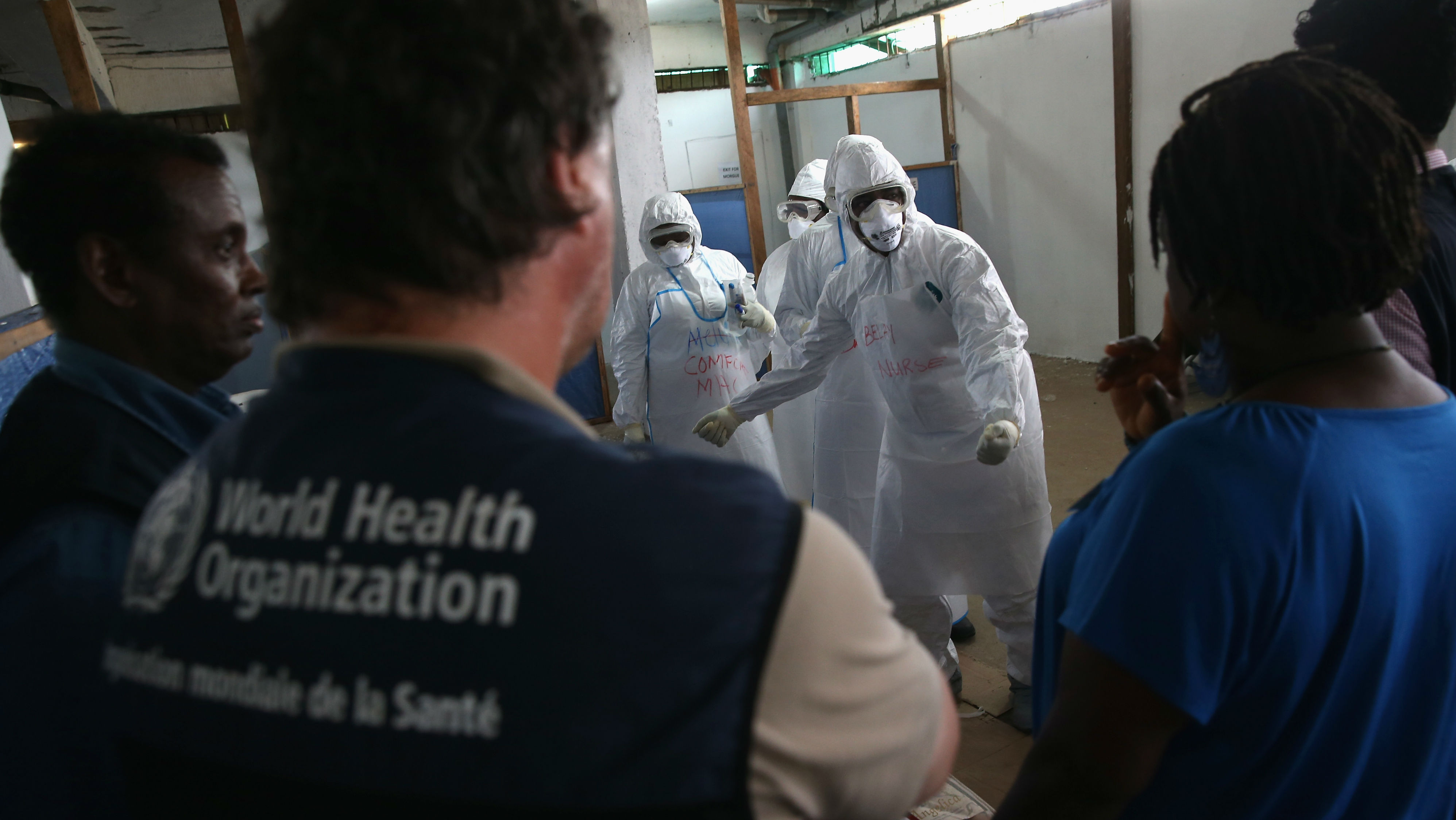Ebola outbreak declared in Democratic Republic of the Congo
World Health Organisation confirms resurgence of deadly disease one year after end of epidemic in West Africa

A free daily email with the biggest news stories of the day – and the best features from TheWeek.com
You are now subscribed
Your newsletter sign-up was successful
A new Ebola outbreak has been declared in the Democratic Republic of Congo, one year after the end of the epidemic in West Africa that killed 11,000 people.
The World Health Organisation (WHO) confirmed two cases of the deadly virus in the east African nation and is investigating another 17 suspected cases.
Three deaths have so far been reported and six patients have been hospitalised.
The Week
Escape your echo chamber. Get the facts behind the news, plus analysis from multiple perspectives.

Sign up for The Week's Free Newsletters
From our morning news briefing to a weekly Good News Newsletter, get the best of The Week delivered directly to your inbox.
From our morning news briefing to a weekly Good News Newsletter, get the best of The Week delivered directly to your inbox.
In a statement, the DRC health ministry said: "Our country must confront an outbreak of the Ebola virus that constitutes a public health crisis of international significance."
Health minister Oly Ilunga told the Congolese "not to panic" despite this being a "national health emergency with international significance".
He added that the "authorities have taken all necessary measures to respond quickly and efficiently to this new outbreak".
Over the weekend, Dr Matshidiso Moeti, WHO's regional director for Africa, travelled to the capital Kinshasa to discuss the response plan with leading authorities in the country, while Gavi, the global vaccine alliance, confirmed 300,000 vaccines for the disease were available in case of an outbreak on the scale of the 2014-16 epidemic.
A free daily email with the biggest news stories of the day – and the best features from TheWeek.com
BBC global health correspondent Tulip Mazumdar said the outbreak was "extremely worrying" for communities living in affected regions, but added that the DRC "has stamped out more Ebola outbreaks than any other place on earth".
There have been eight Ebola outbreaks since 1976, she adds, with the last one, in 2014, being brought to an end within four months.
How the latest outbreak has developed is unclear, but previous ones have been blamed on civilians coming into contact with infected "bush meat" such as apes, says The Independent.
In January 2016, WHO declared the end of a two-year Ebola epidemic across Liberia, Sierra Leone and Guinea that led to 28,000 people being infected with the virus.